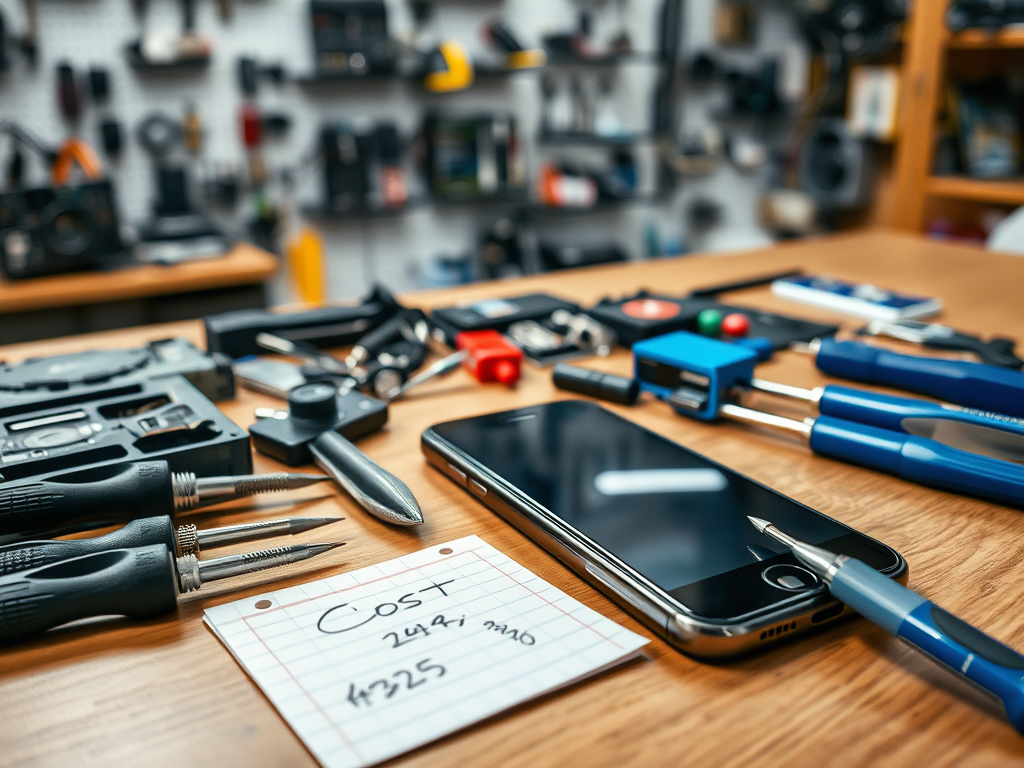In the digital age, smartphones serve as indispensable tools that connect us to the world, manage our tasks, and preserve our memories. However, technology is not infallible, and at some point, you may find yours on the fritz. The dilemma of whether to pour money into repairs or opt for a shiny new upgrade can cause quite a bit of stress. After all, this decision encompasses not only financial considerations but also emotional attachments and future-proofing your tech investments. Making an informed choice is crucial, as it shapes your daily life and impacts your budget significantly. This article will explore the key factors that can guide your decision on whether to fix or upgrade your phone.
Assessing the Condition of Your Phone

Evaluating your current phone’s condition is a fundamental step in your decision-making process. Taking a closer look at both physical and software aspects is essential to determine the urgency and necessity of repairs. Common issues may manifest in various ways, impacting both functionality and user experience. Whether it’s a shattered screen preventing you from reading texts or software that lags painfully, understanding the full scope of your phone’s problems is crucial. Additionally, age matters; if your device is past its expiry date, it may be time to let go. Lastly, consider whether your phone can still receive necessary system updates to keep it running smoothly.
Common Issues to Consider
- Physical damages like cracks or dents affecting usability.
- Software performance issues, such as slow processing or crashes.
- Battery longevity, particularly if it’s draining quicker than before.
Age of the Device
How long have you owned your phone? The average smartphone lifespan is about two to three years, so consider whether your device has surpassed this threshold. In cases where functionality is compromised, a newer model may make more sense. Furthermore, compatibility with ongoing software updates is an essential factor to assess, as it influences the device’s performance and capabilities. If your phone is no longer receiving updates, it may pose security risks that are better addressed with a new model. This exercise in evaluation can help you clearly understand whether repair or replacement is the best avenue to pursue.
Cost Analysis

Understanding the monetary implications can significantly impact your decision regarding repairs versus upgrading. The cost of repairs can vary widely based on the nature and extent of the issue. For example, replacing a cracked screen may be significantly cheaper than fixing internal hardware problems. Researching these costs is essential for budget planning. On the other hand, the option to upgrade your device carries its own set of financial considerations, including potential trade-in values, overall market prices, and any deals or promotions you might qualify for. Ultimately, a detailed cost-benefit analysis will provide clarity on the best financial decision.
Repair Costs
- Screen replacements may typically range from $100 to $300.
- Battery replacements can cost between $50 and $150.
- Motherboard or hardware repairs could lead to expenses over $200.
Upgrade Costs
When considering an upgrade, researching different models can reveal a range of options fitting various budgets. The prices of smartphones can vary from a few hundred to over a thousand dollars. Additionally, many retailers offer attractive trade-in programs that can offset the cost of your new device significantly. Cashing in on trade-in values is an intelligent financial strategy, particularly if your current device is still in good shape. Once you’re clear on the price range, you can better evaluate your current financial situation against your future needs.
| Factors | Fix | Upgrade |
|---|---|---|
| Cost | Lower if minor repairs are needed | Higher initial expense but may offer long-term value |
| Current Condition | Suitable if device is in good shape | Better for newer features and performance |
| Emotional Attachment | May prefer to keep the familiar device | Opportunity to start fresh with new tech |
Features and Functionality
Aligning your smartphone needs with its features is another important consideration. Many users depend on their phones for various tasks, from capturing meaningful moments to managing work responsibilities. If your current device no longer meets your requirements, it may hamper productivity and enjoyment. Evaluate current camera capabilities, processing speed, and battery longevity—these features can make or break your user experience. New models may offer significant advancements in these areas, from enhanced photography capabilities to faster performance speeds. If you find that your needs have evolved, an upgrade could be the most logical answer.
- Assess camera quality and its suitability for your photography needs.
- Evaluate battery life, especially for heavy users.
- Consider processing speed for running demanding applications.
Emotional Factors
While financial considerations are critical, one must not underestimate the emotional aspects of this decision. Many individuals develop a connection to their devices due to shared experiences. It’s essential to recognize how much you rely on and cherish your current phone. Perhaps it has accompanied you through significant life events, building a form of nostalgia that can influence your choice. Furthermore, peer influence can play a role in your decision. Watching friends upgrade frequently might create pressure, but remember that the choice should ultimately reflect your needs and financial situation.
Conclusion
Deciding whether to repair or upgrade your phone is multifaceted, with several factors influencing the final choice. Evaluate your device’s condition, repair versus upgrade costs, features, and emotional attachments to reach a thorough understanding. Taking the time to weigh your options can save you both money and heartache in the long run. No matter which route you choose, aim for a decision that enhances your daily life while keeping your budget in check. By following these steps, you can ensure that your choice aligns with your personal and financial goals.
Frequently Asked Questions
- How can I determine if my phone is worth repairing? Assess the repair costs compared to the current market value of your phone and consider how well it meets your needs.
- Is it more cost-effective to repair or upgrade? It depends on the specific issue, repair costs, and the pricing of newer models. Review both options to see which is more budget-friendly.
- What factors should I consider when choosing a new phone? Look at features such as camera quality, battery life, processing speed, and your budget.
- Can I sell my old phone even if it’s damaged? Yes, many companies will buy damaged phones for parts or refurbishment, though the amount you receive may vary.
- How often should I consider upgrading my phone? It generally depends on personal preference, but many users upgrade every 2-3 years as technology evolves.



